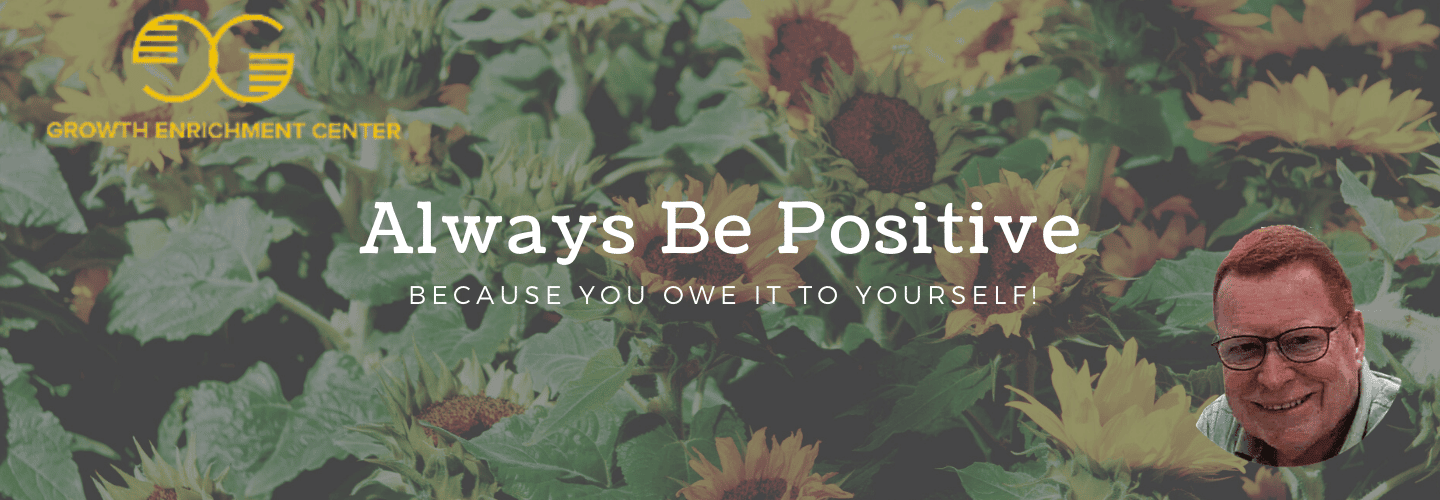
When faced with the challenge of negative self-talk, did you know that there are empowering alternatives that can help you shift your mindset towards positivity and self-empowerment? By incorporating practices like positive affirmations, gratitude, self-compassion, and mindfulness, you can transform your inner dialogue in profound ways. These techniques not only foster personal growth but also pave the way for a more fulfilling and balanced life. Curious to explore how these empowering alternatives can revolutionize your relationship with yourself and the world around you?
The Power of Positive Affirmations
Empowering yourself with positive affirmations can be a transformative tool in changing your mindset and boosting your self-esteem. The words you speak to yourself hold immense power. By consciously choosing to replace negative self-talk with positive affirmations, you can shift your perspective and cultivate a more empowering inner dialogue. Start your day by looking in the mirror and affirming your worth, strength, and capabilities. Repeat phrases like 'I am capable,' 'I am deserving of love and respect,' and 'I believe in myself' to reinforce positive beliefs about yourself.
When faced with challenges or setbacks, use affirmations to remind yourself of your resilience and inner strength. Replace thoughts of doubt with affirmations that reinforce your ability to overcome obstacles. By consistently practicing positive affirmations, you can rewire your brain to focus on your potential and worthiness.
Practicing Gratitude Daily
Are you ready to discover the magic of practicing gratitude daily?
Let's explore how keeping a gratitude journal can boost your mood,
how mindful thankfulness can shift your perspective,
and how positive affirmations can truly make a difference in your life.
Get ready to embrace a more positive outlook starting today!
Gratitude Journal Benefits
Practicing gratitude daily through a journal can greatly benefit your mental well-being and overall outlook on life. Taking a few minutes each day to reflect on what you're grateful for can shift your focus towards positivity.
When you document these moments of gratitude, you create a tangible reminder of the good things in your life. This practice helps to cultivate a mindset of abundance and appreciation, even during challenging times.
As you consistently engage in this habit, you may find yourself noticing more things to be thankful for, both big and small. A gratitude journal serves as a powerful tool to reframe your perspective and nurture a sense of contentment and joy in your daily life.
Mindful Thankfulness Practice
Cultivating a daily practice of mindful thankfulness can transform your perspective and enhance your overall well-being. Taking a few moments each day to reflect on the things you're grateful for can shift your focus from what you lack to what you have.
Start a gratitude journal or simply take mental notes of the positive aspects of your life. Acknowledge even the smallest blessings – a warm cup of tea, a kind gesture from a friend, or a beautiful sunset. This practice can help you cultivate a sense of abundance and contentment.
Positive Affirmations Impact
Embracing positive affirmations daily can greatly impact your mindset and overall well-being, fostering a sense of gratitude and resilience. By practicing gratitude daily, you nurture a habit of focusing on the positive aspects of your life, no matter how small they may seem.
These affirmations serve as gentle reminders of your worth, strength, and capabilities. They help shift your perspective from what you lack to what you have, nurturing a mindset of abundance and appreciation.
When you start your day with words of encouragement and gratitude, you set a positive tone that can influence how you navigate challenges and setbacks. Cultivating this practice can empower you to face each day with a grateful heart and a resilient spirit.
Embracing Self-Compassion
When you extend kindness and understanding to yourself in moments of struggle, you nurture a powerful sense of self-compassion. Embracing self-compassion means treating yourself with the same care and empathy you'd offer a dear friend facing challenges. It involves recognizing your own humanity, accepting imperfections, and embracing yourself with warmth and forgiveness.
Self-compassion allows you to acknowledge your pain without judgment, fostering resilience and inner strength. Instead of harsh self-criticism, you learn to respond to difficulties with kindness and encouragement. By cultivating self-compassion, you build a foundation of emotional well-being that can help you navigate life's ups and downs with greater ease.
Cultivating Mindfulness Techniques

Start integrating mindfulness techniques into your daily routine to foster awareness and presence in each moment. Mindfulness involves being fully present, paying attention to your thoughts and feelings without judgment. Take a few minutes each day to practice mindfulness – it can be as simple as focusing on your breath or observing the sensations around you. By cultivating mindfulness, you can begin to recognize negative self-talk patterns and gently redirect your thoughts towards more positive and constructive ones.
Try incorporating mindfulness into activities you already do, like mindful eating or walking. As you engage in these activities, pay attention to your senses and the experience itself. This practice can help you become more attuned to your body and emotions, fostering a deeper connection with yourself.
Setting Realistic Goals and Boundaries
Setting realistic goals and boundaries is key to your growth and well-being.
By defining clear objectives and establishing healthy limits, you pave the way for success and self-care.
Clear Goal Setting
By establishing clear and realistic goals and boundaries, you can empower yourself to navigate challenges with resilience and determination. Setting specific objectives gives you a clear direction to focus your energy and efforts.
Start by defining what you want to achieve and break it down into smaller, manageable steps. This approach helps you track your progress and celebrate each milestone along the way.
Remember to set boundaries that protect your time, energy, and well-being. Establishing healthy limits prevents burnout and allows you to stay focused on your priorities.
Embrace the process of goal setting as a tool for personal growth and empowerment. Your journey towards success begins with a clear vision and a plan to make it a reality.
Healthy Boundaries Practice
To empower yourself and cultivate a healthier mindset, it's essential to establish clear boundaries and realistic goals that align with your values and aspirations. Setting healthy boundaries is a form of self-care that allows you to protect your mental and emotional well-being.
Here are some tips to help you practice healthy boundaries effectively:
- Identify Your Limits: Recognize what you're comfortable with and what makes you feel stressed or overwhelmed.
- Communicate Clearly: Express your needs and boundaries assertively and respectfully to others.
- Learn to Say No: It's okay to decline requests or opportunities that don't align with your priorities.
- Prioritize Self-Care: Make time for activities that recharge you and honor your boundaries.
Surrounding Yourself With Supportive People

Surround yourself with a supportive network of individuals who uplift and encourage you in your journey towards positive self-talk. The people you choose to surround yourself with can have a significant impact on your self-perception and inner dialogue. Seek out friends, family members, or mentors who genuinely care about your well-being and believe in your potential. These supportive individuals can offer a listening ear, provide constructive feedback, and remind you of your strengths during moments of self-doubt.
Building a strong support system isn't only about receiving encouragement but also about reciprocating support. Be there for your supportive network just as they're there for you. Cultivate relationships based on trust, respect, and mutual empowerment. Together, you can create a positive environment where everyone feels valued and uplifted.
Engaging in Self-Care Activities
Engage in self-care activities to nurture your mind, body, and soul, fostering a positive environment for self-reflection and growth. Here are four ways to prioritize self-care in your daily routine:
- Mind: Dedicate time to mindfulness practices such as meditation or deep breathing exercises. Clearing your mind helps reduce stress and enhances mental clarity.
- Body: Incorporate physical activities you enjoy, whether it's dancing, yoga, or simply going for a walk. Moving your body releases endorphins, boosting your mood and energy levels.
- Soul: Engage in activities that bring you joy and peace, like reading a good book, listening to music, or spending time in nature. Nurturing your soul is essential for overall well-being.
- Self-Compassion: Practice self-compassion by being kind to yourself. Treat yourself with the same love and understanding you'd offer a dear friend facing challenges.
Seeking Professional Help if Needed

If you find that self-care activities aren't sufficient in improving your mental well-being, seeking professional help can provide valuable support and guidance on your journey towards healing. It takes courage to recognize when you need extra help, and reaching out to a mental health professional can be a transformative step towards reclaiming your mental wellness. Remember, seeking help is a sign of strength, not weakness.
Therapists and counselors are trained to provide you with the tools and strategies to navigate through challenging times. They offer a safe and non-judgmental space for you to express your thoughts and feelings, helping you gain a deeper understanding of yourself and your struggles. Through therapy, you can learn healthy coping mechanisms, develop resilience, and work towards breaking free from negative patterns of thinking and behavior.
Professional help isn't a one-size-fits-all solution, so don't be discouraged if the first therapist you meet doesn't feel like the right fit. Keep exploring until you find someone who resonates with you and empowers you on your journey to self-discovery and healing. Remember, you deserve to prioritize your mental well-being.
Frequently Asked Questions
How Can I Break the Cycle of Self-Doubt and Criticism?
Feeling stuck in self-doubt and criticism? You can break free by shifting your focus to positive affirmations, celebrating small victories, and practicing self-compassion. Embrace your worth and replace negativity with self-love.
What Are Some Practical Ways to Boost My Self-Esteem?
Boost your self-esteem by celebrating small victories, setting achievable goals, and practicing self-care. Surround yourself with positive influences, challenge negative thoughts, and focus on your strengths. Embrace self-love and believe in your worth.
Are There Specific Mindfulness Exercises That Can Help With Negative Self-Talk?
When tackling negative self-talk, mindfulness exercises like deep breathing, body scans, and loving-kindness meditations can help you cultivate self-awareness, challenge negative thoughts, and promote self-compassion, empowering you to reframe your inner dialogue positively.
How Can I Differentiate Between Self-Compassion and Self-Indulgence?
Recognize that self-compassion is about understanding and kindness towards yourself, while self-indulgence often involves avoidance or seeking temporary relief. Prioritize growth and long-term well-being, choosing actions that truly nurture your inner self.
What Steps Can I Take to Address Deep-Rooted Negative Beliefs About Myself?
Feeling stuck with those deep-rooted negative beliefs about yourself? It's time to break free! Start by acknowledging those thoughts, then challenge them with positive affirmations, seek therapy, practice self-compassion, and embrace your worth.
Conclusion
You've learned how to transform negative self-talk into empowering self-affirmations, gratitude, and self-compassion. Like a gardener nurturing a delicate flower, tend to your mind with care and watch positivity bloom.
Embrace mindfulness, set clear goals, and surround yourself with supportive souls. Remember, you hold the power to shape your inner dialogue and cultivate a mindset of self-empowerment.
Keep watering your mental garden with love and watch yourself flourish. You've got this!
